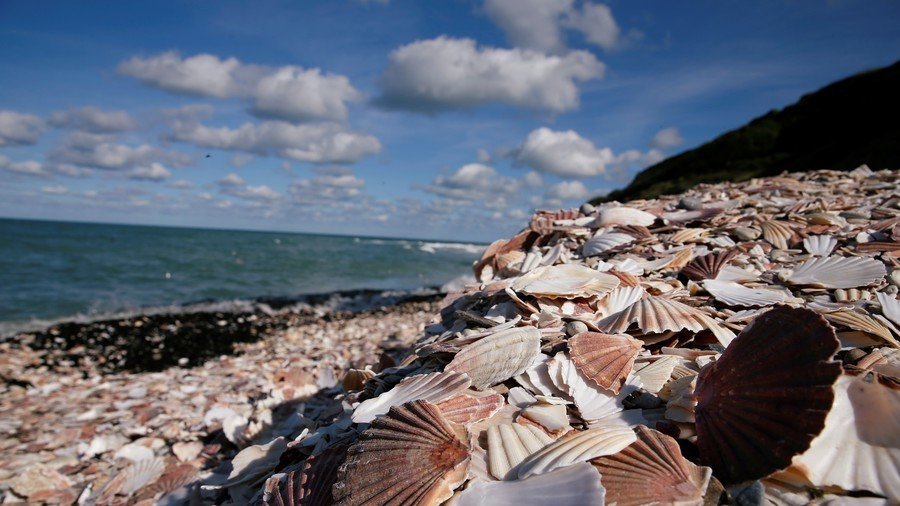Acidified oceans are dissolving the protective shields of large shellfish - study

Rising levels of carbon dioxide in seawater could be a major threat to the planet’s shellfish population, with a new study showing how the pollutant stunts growth and strips away the protective shields of marine life.
In a joint project by the UK’s University of Plymouth and the University of Tsukuba in Japan, researchers analysed the effect of the pollutant from a natural gas vent on the sea snail charonia lampas, or triton shellfish.
READ MORE: Lobster pot: Restaurant gets shellfish high on marijuana prior to cooking
Famous for its large colorful shell, the triton was once harvested for jewelry, like necklaces. The unique shellfish is now facing a very different and encompassing threat in the form of increasing carbon dioxide in the planet’s oceans.
According to the new study, which featured in the peer-reviewed Frontiers in Marine Science journal, tritons were smaller in seawaters predicted to absorb higher levels of Co2.
There is also a threat to the animal’s protective shell which is used to ward off potential predators. Thickness of triton shells displayed “visible deterioration” in waters off Shikine-jima island, Japan, where scientists studying ocean acidification have previously visited a gas vent near near Mikawa Bay.
READ MORE: Woman lucky to survive after flying fish slits her throat (PHOTOS)
Dr Ben Harvey, assistant professor in the University of Tsukuba’s Shimoda Marine Research Center, said the acidification of oceans is a “clear threat to marine life.”
“Here we found that the ability of the triton shells to produce and maintain their shells was hindered by ocean acidification, with the corrosive seawater making them smoother, thinner, and less dense,” he explained.
The evidence uncovered by researchers signals “profound consequences” for calcified sea creatures in the future, Harvey warned.
Like this story? Share it with a friend!














